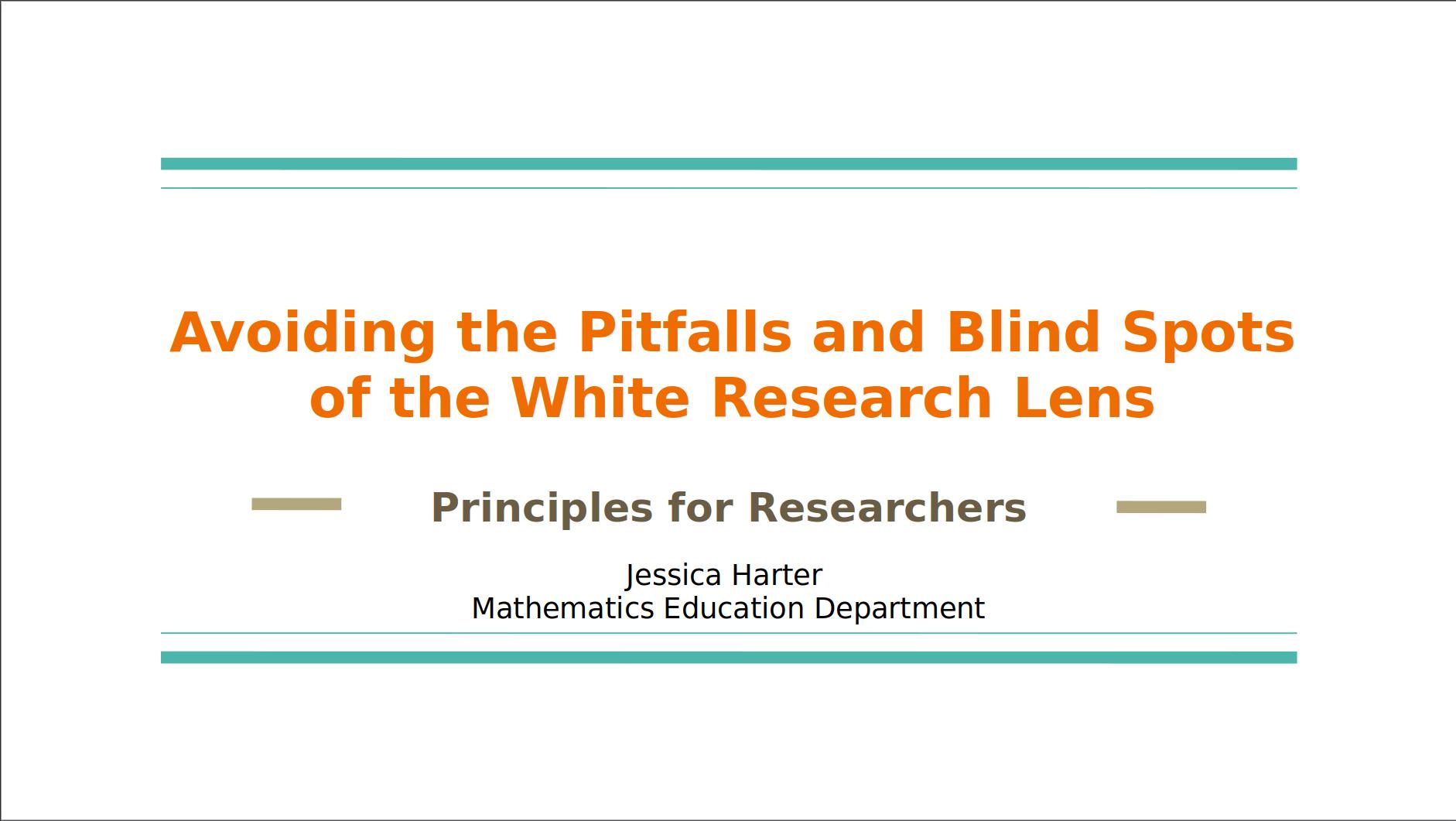Title:
Avoiding the Pitfalls and Blind Spots of the White Research Lens
Slideshow Presentation
Best viewed by downloading
Preview Converted Images may contain errors

Abstract
Race plays an important role in identifying societal differences in wealth, education, health care, and other facets of life (Holland, 2008). Racial disparities are not a result of race but rather the outcome of systemic racism embedded in our institutions. Consequently, the examination of race is crucial to identify and rectify these inequities. All researchers, regardless of their racial background, can exhibit blind spots in their research often stemming from their personal experiences and participation in settings following White-dominated paradigms of scholarship (Bonilla-Silva & Zuberi, 2008). Research on race can be placed on a continuum, ranging from flawed scholarship where researchers fell victim to the White lens to exemplary scholarship where researchers were sensitive to their positionality and its potential impact on their research. Eliminating racial inequality requires that we document and study race, but in doing so we can inadvertently reproduce and perpetuate racial disparities rather than mitigate them (Zuberi, 2008). In this presentation, we will explore various principles researchers should follow in an effort to see the realities of racial phenomena and related inequalities with fewer pitfalls and fewer blind spots. The presentation will address fundamental questions such as: How does my race affect my research and what do I need to be aware of when conceiving of new research, conducting those investigations, and disseminating the results?
Authors
| First Name |
Last Name |
|
Jessica
|
Harter
|
Leave a comment
Submission Details
Conference GRC
Event Graduate Research Conference
Department Mathematics Education (GRC)
Group Oral Presentation
Added April 10, 2024, 10:21 a.m.
Updated April 12, 2024, 8:05 a.m.
See More Department Presentations Here